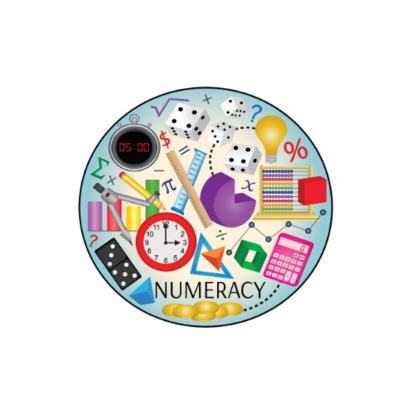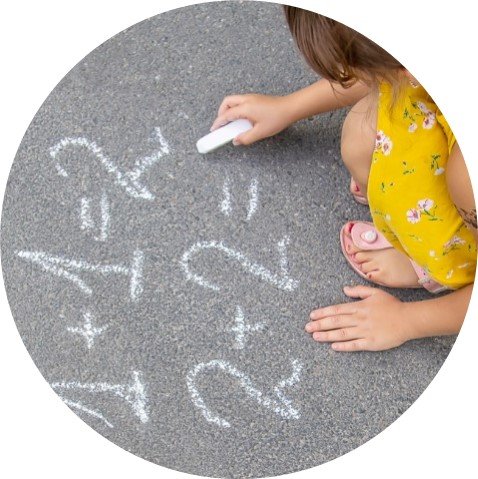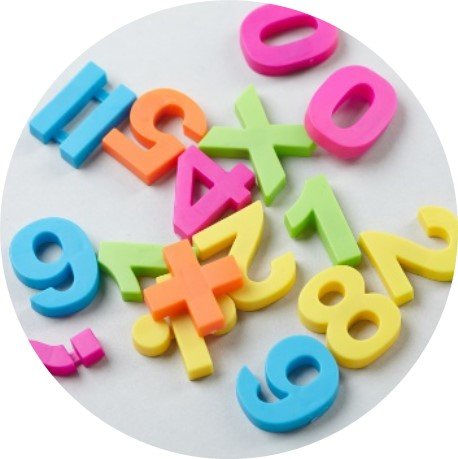
Figure it out on National
Numeracy Day!
We can all show that we are ‘magic at Maths’ by celebrating National Numeracy Day
on Wednesday 17th May 2023.
What is National Numeracy Day?
National Numeracy Day is an annual day with the aim of raising the profile of being numerate and confident with numbers.
The motto from www.nationalnumeracy.org couldn’t be truer, especially now.
“Get on with numbers so you can get on in life.”
Let’s get busy with numbers: 10 Simple Classroom Ideas
Here are some simple, yet effective, ideas you could try or adapt:
1. Make a note every time maths is used in your classroom on the 17th.
Raise the profile of numbers within your setting and help the children see that we use our ‘maths brain’ a lot, each and every day. Maybe make this a fun whole school challenge and see which class can record using the most maths throughout the day. You could even ask the headteacher to announce the ‘winner’ at the end! Alternatively, each class could try to think of as many examples of using Maths in everyday life as possible, or you could just do this in your own class and split your children up into little teams.
2. Show the children that YOU enjoy Maths (and if it isn’t your favourite subject then fake it!) They will always respond better to an enthusiastic, passionate teacher.
3. Create a whole school special day. Why not ask the children to dress up as a ‘Mathematician’ for the day? This might be a good opportunity to challenge stereotypes about what someone who loves, and is good at, Maths looks like!
4. Have a ‘Practical Maths Day’ where the focus is taken off the written method and put on having fun with Numeracy. Raid the Maths cupboard(s) in school and use as many practical resources as possible. Time to break out those construction blocks, small world objects, buttons and counters (and we mean for KS2 too!!) Alternatively, you could also bring in items from home. Ransack your cupboards for pasta, cereal hoops, rice, sweets (if allowed!) and anything that could be safely used in the classroom. These items are perfect for activities such as counting, addition, subtraction, division, multiplication arrays and fractions to name just a few.
5. Why not have a carousel of activities going on? Set up different stations within the classroom/setting with different practical activities. You could split the children so that they are half and half with another class/year group so that they can mix with other children and inspire each other. You could pair classes or Key Stages together for an even better collaborative approach.

As this day falls the week after (dare we say it?) Year 6 SATs, it might be especially nice for the oldest in your school to have a special ‘fun’ day where they see Maths learning as fun rather than learning about it for a ‘test’.
6. Do some baking or cooking. Combine with D.T. for some cross-curricular maths. Get the children weighing ingredients and chopping “in half” or “quarters”.
7. Time (no pun intended!) for some outdoor maths! Use P.E. equipment such as beanbags, balls and hula hoops to create games. Challenge your children to devise the actual games – with one stipulation – they have to be able to score ‘points’ during it (so the children have to use their calculation skills whilst playing).
For KS1, you could play a number bonds game for a warm up activity i.e. you shout a number and the children have to jump/hop/skip the corresponding number. So, if you shout ‘6’, they have to jump 4 times.
Alternatively, why not do some data handling and create a ‘person’ bar chart on the playground/grass/in the hall? You could create tally charts first about what the class’ favourite of something is (e.g. flavour of crisps) and then get the children to show this by sitting in a line according to the parameters. Create ‘signs’ for the flavours of crisp or use cones, i.e. the red cone is Ready Salted etc. If you want a form of ‘recording’ for this activity, you could take an aerial photo of their bar chart.
8. Use Maths songs. Start the day with singing and dancing. There are lots available online and our resident Maths guru, Dave Godfrey, creator of the Number Fun songs, has a vast array of these. Children will enjoy Maths so much more if they find it fun. BBC Supermovers is also good for this and has a range suitable for KS1 and KS2.
9. Have a Maths Quiz. Use either mixed ability teams so that everyone can feel part of it, or alternatively, group the children according to ability so that you can tailor the quiz to specific groups of children. If you are lucky and have enough support staff (and enough space in school!), you could have multiple quizzes happening at once.
10. Partnering. It can be very powerful to partner children, e.g., pair a child who is very confident at Maths with a child who is less confident and ask them to show their partner a particular skill. You might be surprised at how effective this is – and both children will get a lot from it. The confident child gets to explain how to do something (thereby accessing Mastery skills) and the less confident child may find it easier to understand when a peer/friend explains it.


Let EuHu help you!
We have numerous resources that can help you with those tricky-to-teach topics that need a little bit of extra inspiration. Use the expertise of EuHu’s own marvellous Mathematician Dave Godfrey. Dave’s passion is to inspire and encourage children’s
love of all things Maths and he does this in a practical and memorable way. Take a look at Dave’s inspiring WOW Maths lessons.
Also, check out our Teacher Resources section and find the Numicon, Multilink, Unifix and Class Coins Set for more perfect practical ideas and lovely Maths downloadables. Click on the Activity and Lesson Ideas section for this!